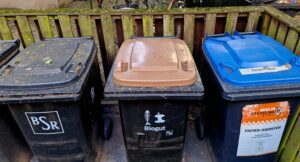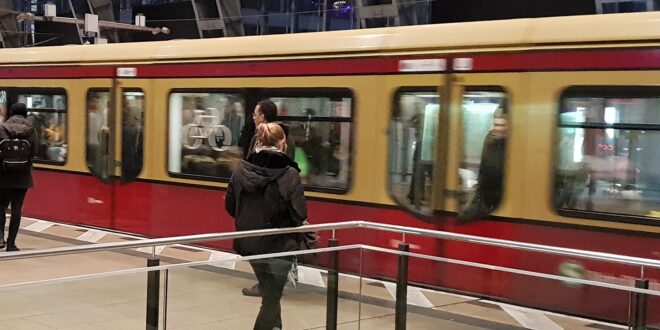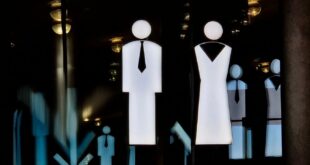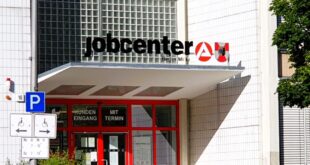Several important changes are taking effect across Germany in May 2025 that affect everyday life — from how passports and ID cards are issued to stricter recycling rules and new family name rights. The African Courier has summarised the most relevant updates here:
![]()
Digital Photos for ID and Passport Applications
Starting May 2025, anyone applying for a passport, national ID, electronic residence permit, or refugee travel document must submit a digital passport photo. Traditional paper photos — whether from photo booths or studios — will no longer be accepted.
How the new rule works:
- Photos can be taken directly at the registration office using new photo machines.
- Alternatively, certified photo studios can upload your image directly to the government’s secure database.
Why the change?
This new regulation is intended to combat identity fraud through a method known as “morphing,” where manipulated images combine facial features of multiple people. This edited photo can then be used to commit fraud, such as crossing borders illegally, because the ID card created from it cannot be clearly linked to only one person. Digital processing and the secure, encrypted transfer of photos are intended to prevent this kind of misuse and make ID documents much harder to fake.
![]()
Passports and ID Cards Can Now Be Mailed to You
From 2 May, those who apply for a new passport or ID card can choose to have it delivered by post, avoiding a second trip to the office. This optional service costs €15 and is offered by Deutsche Post.
![]()
New Boarding Rule in Berlin’s Public Transport
If you use public transport in Berlin, take note: Starting in May, holding train or bus doors open on purpose could cost you €50. The Berlin public transport authority (BVG) introduced the rule to prevent delays and damage caused by passengers forcing doors open. Frequent delays and broken doors have prompted this enforcement.
Deliberately holding doors open actually happens very often in the capital. Even though trains and buses run every five minutes – or even more frequently – passengers still regularly force the doors open. Many do it to help a friend to get in. Others just want to squeeze in themselves at the last second. The new boarding rule is now meant to put an end to this behaviour.
![]()

Parental Leave Can Now Be Requested by Email
From 1 May, parents of children born on or after this date can apply for parental leave digitally by email. A written, signed application is no longer required. Employers can also respond via email. This simplifies the process and improves communication.
![]()
Married Couples Can Choose Double Surnames
Couples married in Germany can now take a double-barrelled surname, combining both last names, with or without a hyphen. Previously, only one partner could adopt the other’s name for a name combination.
If parents choose this surname format, it becomes the birth name of their children. If no decision is made after birth, the child will automatically receive a double surname based on both parents’ names — even if the parents aren’t married.
In case of divorce, children may adopt the surname of the parent they live with.
![]()
Electronic Patient Record (ePA) Now in Use
From 29 April, all doctors and pharmacies in Germany can access the electronic patient record (elektronische Patientenakte, ePA). After successful pilot testing, it’s now part of regular healthcare. This allows for faster communication between healthcare providers and better treatment coordination.
![]()
Refund for Pensioners with Children
Pensioners with children under 25 may receive refunds in May due to overpaid long-term care insurance contributions. Although a new child-based calculation model has been in place since July 2023, not all pensioners’ data was updated in time. The result: some may receive back payments worth several hundred euros.
![]()
Skype to Be Shut Down by Microsoft
Microsoft is discontinuing its Skype service, shifting focus to Microsoft Teams. Skype will remain usable only until 5 May 2025. Users can log in to Teams with their Skype credentials to stay connected.
![]()
Stricter Rules for Organic Waste (Biowaste)
New national rules take effect from 1 May 2025 to improve the quality of biowaste. Only a very small percentage of non-organic materials will be tolerated:
- Total contaminants (like glass, plastic, or stones) must not exceed 3%.
- Plastic alone must not exceed 1%.
What does this mean for households?
- Waste collectors can refuse to empty bins that don’t meet the standard.
- Incorrectly filled bins will be labelled with a red sticker and must be sorted again by the residents. Extra collection fees may apply.
- Repeated violations may result in fines of up to €2,500, depending on your city or district.
What belongs in the organic waste bin?
Only natural and biodegradable materials like:
- Fruit and vegetable scraps
- Food leftovers
- Coffee grounds and filters
- Garden waste
Do not include: plastic bags, diapers, packaging, cat litter, glass, or metal.
If you live in Germany, these new rules might impact you directly. Stay informed and act early to avoid delays, penalties, or missed benefits.
Femi Awoniyi
 THE AFRICAN COURIER. Reporting Africa and its Diaspora! The African Courier is an international magazine published in Germany to report on Africa and the Diaspora African experience. The first issue of the bimonthly magazine appeared on the newsstands on 15 February 1998. The African Courier is a communication forum for European-African political, economic and cultural exchanges, and a voice for Africa in Europe.
THE AFRICAN COURIER. Reporting Africa and its Diaspora! The African Courier is an international magazine published in Germany to report on Africa and the Diaspora African experience. The first issue of the bimonthly magazine appeared on the newsstands on 15 February 1998. The African Courier is a communication forum for European-African political, economic and cultural exchanges, and a voice for Africa in Europe.




































